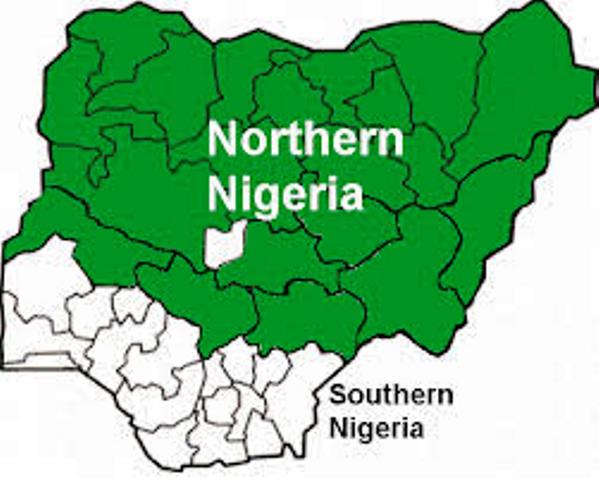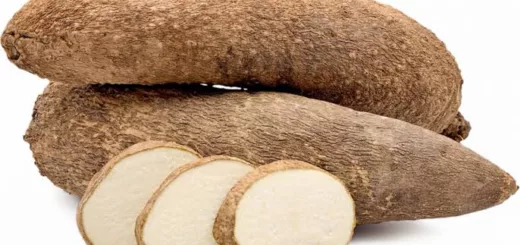List of North East States in Nigeria
The Hausa speaking states in Nigeria that makes up the North-Eastern Geo-political zone of the country are six in number, and they are: Taraba, Adamawa, Yobe, Bauchi, Gombe and Borno states respectively. Within these states are various ethnic groups speaking different languages and have their distinct cultures. The similar trait binding these Northern states is the major language spoken there, which is the Hausa language.

Map Showing The Northern States in Nigeria
In this post, we list out all North East states in Nigeria and their details, ranging from geographical, economical and even political characteristics of these states.
Full List of North-Eastern States in Nigeria
Adamawa State
Created and carved out in 1991 from Gongola State, Adamawa is one of the states located in north-eastern Nigeria. The geographical area of Adamawa state measures about 36,917 square kilometres making it one of the largest states of Nigeria by area. It shares borders with Borno, Gombe and Taraba respectively. It also shares national eastern border with Cameroon.
Academically, Adamawa state has two popular universities situated in the state’s capital, Yola. These schools are made up of one federal and one private university; the Modibbo Adama University of Technology (Federal) and the American University of Nigeria (Private). The private university, ANU is owned by one of the state’s own illustrious son and former vice president of Nigeria, Alhaji Atiku Abubakar. You can also located other tertiary academic institutions in the state such as: Adamawa State Polytechnic, and Adamawa State college of Nursing and Midwifery.
The slogan of Adamawa state is “Land of Beauty”, while the major occupation of its inhabitant is agriculture. Cash crops and food crops such as groundnut, cotton, maize, cassava, millet, rice and corn are found there. Mineral resources found in Adamawa include: Benatonite, Gypsium, Kaolin and Magnesite.
Predominatly, Islam is the major religion of the people living in this state, while christians and other types of religions form the minority. Politically, Adamawa is a PDP state.
Bauchi State
Bauchi State is another Hausa speaking state situated at the North-East geopolitical region of the country with a land mass area measuring 49,119 km². This state shares boundaries with Kano, Jigawa, Taraba, Plateau, Kaduna, Yobe and Gombe. With a big land mass, Bauchi can be regarded as one of the biggest states in Nigeria occupying about 5.3% of Nigeria’s total land mass.
The capital, Bauchi is the seat of power for the state government. Created in 1976, this North-eastern state has two tertiary institutions for academic learning. They include the Federal Polytechnic, Bauchi and Bauchi State University. One famous political personality from this state who has contributed to the nation’s growth and is seen as a founding father in Nigeria is Abubakar Tafawa Balewa, Nigeria’s only prime minister.
Economically, the people of Bauchi rely heavily on agriculture. Although, there are other sectors that contribute to the state’s IGR, agriculture is still the major source of income of the state. The slogan for Bauchi state is “Pearl of Tourism”.
Although, Bauchi State has 55 recorded tribal groups, Hausa and Fulani still remains the major language spoke among the twenty local government areas in the state. Natural resources found in Bauch state include: Coal, Cassiterite, Gold, Iron Ore, Uranium, Gypsum, etc.
Borno State
Borno State was formed in 1976 from Yobe, which is also a north-eastern state. The capital, Maiduguri is one of the most dangerous cities in Nigeria due to the incessant attacks and activities from the deadly insurgent group, Boko Haram. Borno state measures a total land area of 57,799 km2, making her the second largest state in Nigeria and also the biggest state in the north-east by land area.
Borno State is majorly occupied by the Kanuri people. Other ethnic groups ranging from Lamang, Marghi and Babur/Bura are also found in the southern part of the state. The Shuwa Arabs are also found in less numbers but they are within the state. The major religion of Borno inhabitants is Islam. Christianity and other religions make up the minority in the state.
The slogan of Borno state is “Home of Peace”, but this nickname has been dully tarnished by the Boko Haram sect, a terrorist organization responsible for deaths of many, who kidnapped 200 chibok girls and has since made life practically difficult for Nigerians as a whole.
There are 27 LGA’s in the state with eight emirate councils. Some natural mineral resources that can be found in Borno state include Bentonite, Clay, Diatomite, Gypsium, Limestone, etc.
Gombe State
Gombe state geographically occupies an area of 20,265 km² and has a population of approximately 2,365,000 people based on the 2006 census. Also listed among the smallest states in Nigeria by land mass, Gombe was created in 1996 by former military dictator, General Sani Abacha. Gombe has land boundaries with Borno, Taraba, Yobe, Bauchi and Adamawa states respectively.
Gombe’s slogan is “Jewel of Excellence” and its capital is Gombe. The state is made up of eleven local government areas and Hausa and Fulani are the major tribes in this northeastern state. You can also find Kanuri’s, Tera, Tangale and other northern tribes in the state. Like other Hausa states in the country, Islam religion is the main religion in Gombe.
Natural resources found in Gombe state include Gemstone and Gypsium. Academic institutions in the state include Gombe State University, Federal University of Kashere, Federal College of Education (Technical) Gombe, College Of Legal And Islamic Studies Nafada, College of Education Billiri and State Polytechnic Bajoga, University of science and technology, Kumo.
Taraba State
Taraba is also a North Eastern state created on 27 March 1991, by the former military head of state, General Ibrahim Babangida. The capital of Taraba state is Jalingo and its slogan is “Nature’s gift to the nation”. With a geographical land area size of 54,473 km2, Taraba shares boundaries with Nasarawa to the west, Benue, Plateau, Bauchi, Gombe and Adamawa state. The population of this state according to the 2006 census is 2,294,800.
The people of Taraba are mostly farmers who rear animals like cattle, goats, sheep and rams along the Mambilla Plateau, Benue and Taraba valleys. Also, agriculture is also practiced in this state. Some cash crops produced in the state are coffee, tea, groundnuts and cotton. Other food crops include maize, sorghum, millet, rice, cassava, and yam can be located in this state. Aside this, pig rearing, rabbit and poultry can be found among small scale businesses in the state.
Taraba state has sixteen local government areas where different tribes and languages are spoken. Occupational activities not limited to pottery, dyeing, cloth-weaving, mat-making, embroidery, carving and blacksmiths are just a few major occupation of Taraba inhabitants. Some mineral resources such as Kaolin, Gold, Gypsium, Magnets ans Barytes are found there.
Yobe State
Yobe is the last state located in North-east Nigeria. It was created in 1991 under the IBB administration. The capital of Yobe is Damaturu and its slogan is “Pride of the sahel”. Yobe state shares land borders with Bauchi, Borno, Gombe, and Jigawa states, including Niger Republic.
The state consists of seventeen local government areas, and has hot weather conditions, due to its dry savanna belt. Yobe’s economy depends majorly on agriculture and the state is also blessed with rich mineral deposits. Soda ash and Tintomite are just a few minerals found there. Yobe also has one of West Africa’s largest livestock markets in Potiskum, a popular town in the state.
Aside Hausa, other languages in Yobe State are Bura-Pabir, Manga Kanuri, and Zarma. Sharia law still operates in this state and Christianity make up the minority religion in this north-eastern state.


